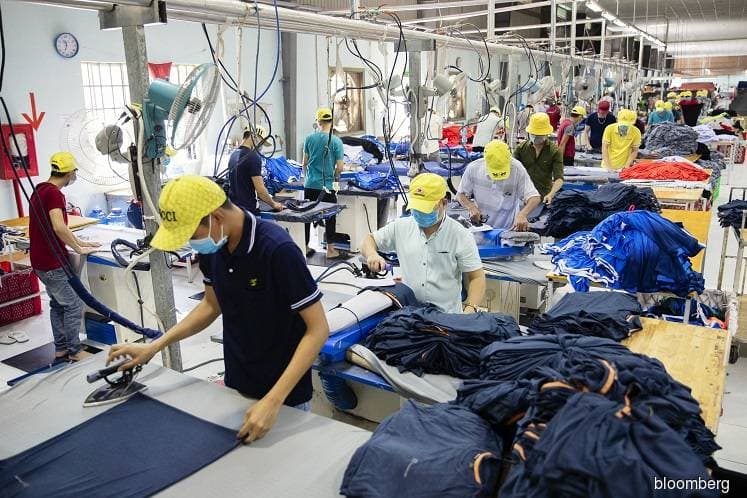
KUALA LUMPUR (July 1): ASEAN manufacturing conditions continued to deteriorate in June, although the rate of decline eased from May, according to the latest IHS Markit Purchasing Managers' Index (PMI) data.
IHS Markit said the headline PMI registered a record one-month gain of 8.2 points, rising from 35.5 in May to hit a four-month high of 43.7 in June. This indicated that the current downturn eased notably at the end of the second quarter.
The headline PMI has been in the downtrend for the last few months. The headline PMI recorded 50.2 in February, before it slid further to 43.4 in March, 30.7 in April and 35.5 in May.
"Nonetheless, the index remained firmly in contraction territory and signalled a fourth successive monthly deterioration of the health of the ASEAN manufacturing sector.
"Helping lift the headline figure were slower reductions in both output and new orders, but the drops remained sharper than their respective pre-[Covid-19] records. With demand remaining muted, firms continued to cut staff numbers sharply," it said.
Overall, IHS Markit said operating conditions across the ASEAN manufacturing sector continued to deteriorate markedly in June. Softer reductions in factory production and new orders pushed the headline figure up, but the PMI was still notably below the pre-Covid-19 low of 47.6 in November 2015.
Also, amid weak client demand, firms cut workforce numbers again in June. The rate of job shedding was the third sharpest on record, despite softening from May, it added.
At the same time, IHS Markit said ASEAN goods producers continued to pare back on purchasing, with buying activity falling markedly. Inventories of both pre- and post-production items also declined. Supply-chain disruptions continued, although the extent to which lead times lengthened was the least severe since February.
Meanwhile, it said the cost burdens rose for the third month running, with the rate of inflation the steepest since November 2018. Latest data highlighted a renewed fall in average charges, however, although the pace of reduction was only slight.
Commenting on the latest survey results, IHS Markit economist Lewis Cooper said the deterioration in operating conditions in June was the softest in the aforementioned sequence.
However, he said with output and order book volumes falling at much slower rates as larger swathes of the sector reopened and production lines restarted.
"Encouragingly, the 12-month outlook for output picked up, with sentiment the highest since February. Still, the sector has a way to go to recover from the Covid-19 pandemic.
"Although the rates of contraction in output and new orders have eased from the unprecedented drops in April and May as restrictions related to the virus have generally been loosened, ASEAN goods producers still face weak demand conditions at home and abroad.
"Until there is a meaningful recovery in customer demand, it's unlikely the sector will see any notable improvements in conditions in the months ahead," he added.
At the country level, IHS Markit said two of the seven constituent countries saw an improvement in operating conditions during June, such as Vietnam and Malaysia.
"Vietnam recorded the strongest increase, although the headline figure (51.1) pointed to only a mild improvement in manufacturing conditions. Similarly, Malaysian manufacturers reported the first improvement in the health of the sector since September 2018. At 51.0 in June, the headline index was also indicative of only a marginal uptick.
"Elsewhere, the Philippines registered a fourth successive monthly deterioration in manufacturing conditions during June. The headline index (49.7) was indicative of only a slight contraction, however. Myanmar also saw conditions weaken, with the headline figure (48.7) below the 50.0 neutral mark for the fifth month running. That said, the decline was the slowest since February and only modest.
"At the same time, the downturn in Thailand's manufacturing sector continued, with the headline figure (43.5) signalling a marked deterioration despite rising from May. Similarly, Indonesia recorded a further contraction, although the rate of decline softened considerably from the previous survey period, with the headline index rising to 39.1.
"Finally, operating conditions in Singapore also deteriorated, with the downturn the most marked across each of the monitored countries. The headline figure (38.8) signalled a steep contraction, despite a noticeable 12.4-point rise from May," IHS Markit concluded.
